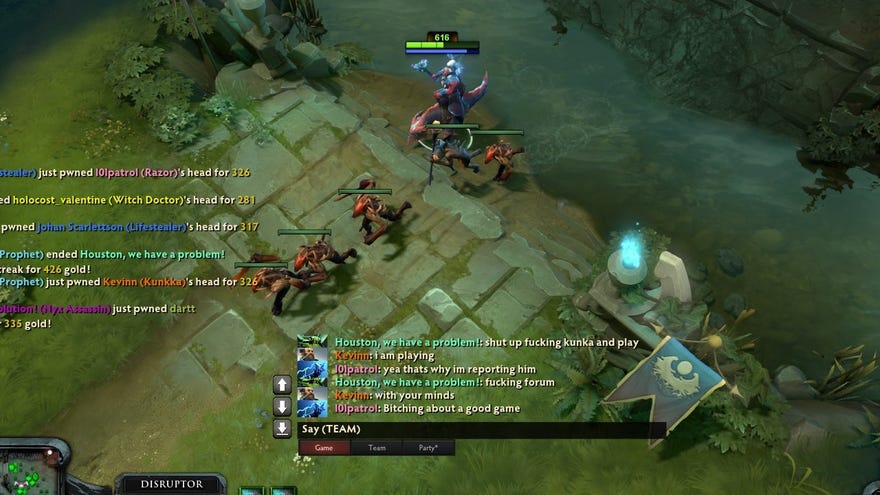New study finds that 74% have been harassed in online multiplayer games
Also a whole lot of white supremacy
According to a recent study by civil rights group the Anti-Defamation League (ADL), 74% of people who play online multiplayer games have experienced some form of harassment, with 65% experiencing “severe” harassment, which may include physical threats or stalking. And that's only the start of their downpour of awful numbers, which cover bigotry, extremist views, which games have the worst occurrence rates, and more.
The study is based on a survey of more than 1000 people in the USA, conducted in April. It's worth bearing in mind that survey data only provides part of the picture when it comes to an issue as complicated as online abuse, and can be limited based on who responds and why, as well as any number of other factors. Still, ADL report a margin of error of 4%, and the numbers remain unflattering however you look at them. I’m not going to include every result, so if you want that you can find the report and its summary at ADL’s website. Otherwise, here are some particular notes.
More than half – 53% of respondents – said that harassment was based on “race, religion, ability, gender, gender identity, sexual orientation, or ethnicity.” So, while almost everyone is getting people being awful to them while they’re just trying to play a video game, a lot of it remains rooted in bigotry.
A way-too-large minority also reported having experienced other players chatting about “extremist ideologies,” including 23% overhearing discussions of white supremacy, 9% noticing Holocaust denial, 8% hearing support for Islamic State.
ADL also found that 29% of players have been doxed, having their personal information revealed. The fact that people want to do this does suggest that maybe removing anonymity would cause more problems to the harassed than it would prevent those doing the harassing.
The top 15 most-played games in the US all had more than half of players reporting some form of harassment, but top of the list is Dota 2 at 79%. CS:GO, Playerunknown’s Battlegrounds, Overwatch, and League Of Legends all tie for second place at 75%.
It’s easy to speculate why these games have such high levels of harassment, though the report itself doesn't search for a reason. To varying degrees, they all market themselves to “hardcore” fans and require a heavy time and effort commitment in order to learn how to play. That can lead some to take it too seriously at the expense of others, and it only takes one person in a lobby to ruin it for everybody.
Then there’s the fact that developers have been slow to implement changes, allowing this sort of culture to become normalised even when it was deeply predictable from launch. Six years after release, DOTA 2 added an “experimental” avoid player option in May. Overwatch has been proudly broadcasting the improvements that its endorsement system brought without addressing how the underlying problem got so bad in the first place.
The report also notes the negative impacts of harassment. The most common answer (23%) was that a player became “less social,” a problem that the common refrain of “just mute everyone,” doesn’t fix, instead driving the player further into isolation.
“At ADL, we see online multiplayer games as social platforms, and we need to fight hate on these platforms with the same seriousness as traditional social media,” says CEO Jonathan Greenblatt. And while Twitter and Facebook might be godawful at removing Nazis and the like from their platforms, they do appear to have a lower rate of harassment. A similar study the ADL published in February of this year found that 37% of Americans had experienced severe hate via these sorts of websites, which is still a lot, but a marked difference.
Do games just invite more awful people? Does their competitive nature encourage these nice, polite social media users to suddenly become abuse-spitting horrors? Whatever it is, games companies might want to invest more of their resources into finding out, because people are quitting due to the hostile environment (19%) or avoiding certain games altogether due to their reputations (23%).







.jpg?width=291&height=164&fit=crop&quality=80&format=jpg&auto=webp)


